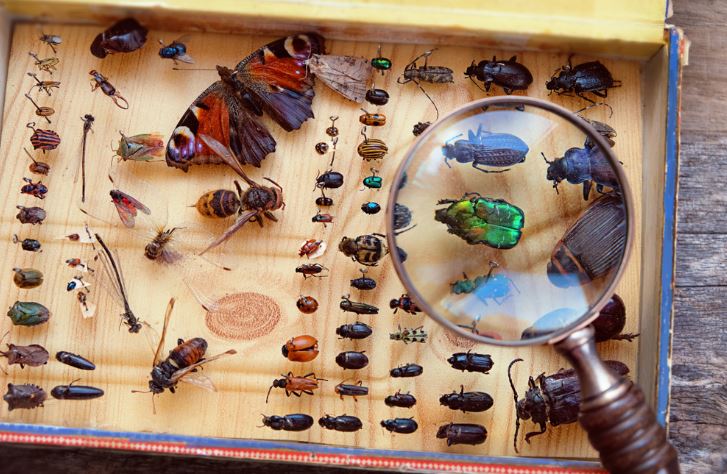

Demanding Attention, and Studies
In all the talk of environment damage, one of the most critical members of the ecosystem, insects, frequently get a raw deal. With the exception of bees, an ordinary person, if asked, would struggle to name any other insect that is ‘useful’. This narrative, where most insects are seen either as pests or as carriers of disease and germs, has ensured that the biggest extermination of species, happening all around us, has hardly got the attention it deserves. Unlike larger mammals like the Elephant, Tiger, Lion etc. Until now.
The Guardian, the BBC, even CNN have all placed these tiny members of our world under the lens this week. Why?
Because contrary to popular opinion or knowledge, insects, beyond the bees and the bumblebees, do play a vital role in the food chain. The warnings have been coming since 2017, when a study first identified a 75% decline in insect populations at German Nature Reserves, over a 27 year period. Even as this study remained of limited importance, due to its limitation to Germany, a larger global study suggest that 40% of insect species are going through ‘dramatic’ declines all over the world.
A new study published in the journal Biological Conservation, based on a review of 73 existing studies from around the world published over the past 13 years has stark news to share.
It posits that 40% of insect species all over the earth will be extinct over the next few decades. One-third of insect species are already classed as Endangered. Insects like Bees, Bumblebees and Beetles are the worst hit. Worse, some ‘undesirables’, namely houseflies and cockroaches will actually thrive further.
This is because insects are linked to the chain in multiple ways. They provide food for smaller animals and mammals, which in turn, help keep the balance vis a vis other insects. With whole species being wiped out, multiple animals higher up on the food chain will also be affected. With 80% of wild plants dependent on them for pollination, and 60 % of birds, a species collapse will be catastrophic down the line.
With habitat loss and intensive farming the key reason for the wipeout, that leaves an open ground for ‘urban’ adapted insects like Houseflies and cockroaches to step up and multiply.
Climate change will only make it worse, with fast breeding insects able to adapt better. And guess what that includes? Mosquitoes. Already, countries with no previous history of mosquito borne diseases like are reporting cases regularly now. The US is already getting a crash course in Zika and Chikungunya since early this decade.
For countries in Asia, particularly India, data remains patchy at best, although local areas have reported wide changes in the fauna over the years, pointing to serious changes foot. Be it the disappearance of birds that depend on insects, or the proliferation of birds like pigeons to vermin levels, or even the hardy adaptation of parakeets to city life, much is changing.
What we do know of course is that India continues to allow the use of pesticides that have been banned in many other places in the world, and our use of fertilisers continues to be driven recklessly on the back of skewed subsidies. Damage to the soil at least is well documented from these depredations. But as of now, we have pretty much ignored the damage we have already done to the insect world here. Will it take a crisis to wake us up again?
Andhra Pradesh is striving towards greening its energy sector with quite some speed. In a…
With an objective to bolster India’s green energy goals, a Tripartite Agreement has been signed…
The Union MNRE Minister Pralhad Joshi launched the Green Hydrogen Certification Scheme of India (GHCI)…
India’s energy conglomerate Bharat Petroleum Corporation Limited (BPCL) has commissioned a 5MW green hydrogen plant…
In a historical development, the European Space Agency (ESA) has successfully launched its pioneering ‘Biomass’…
As India looks to bolster its biofuel sector in the era of sustainable development, the…